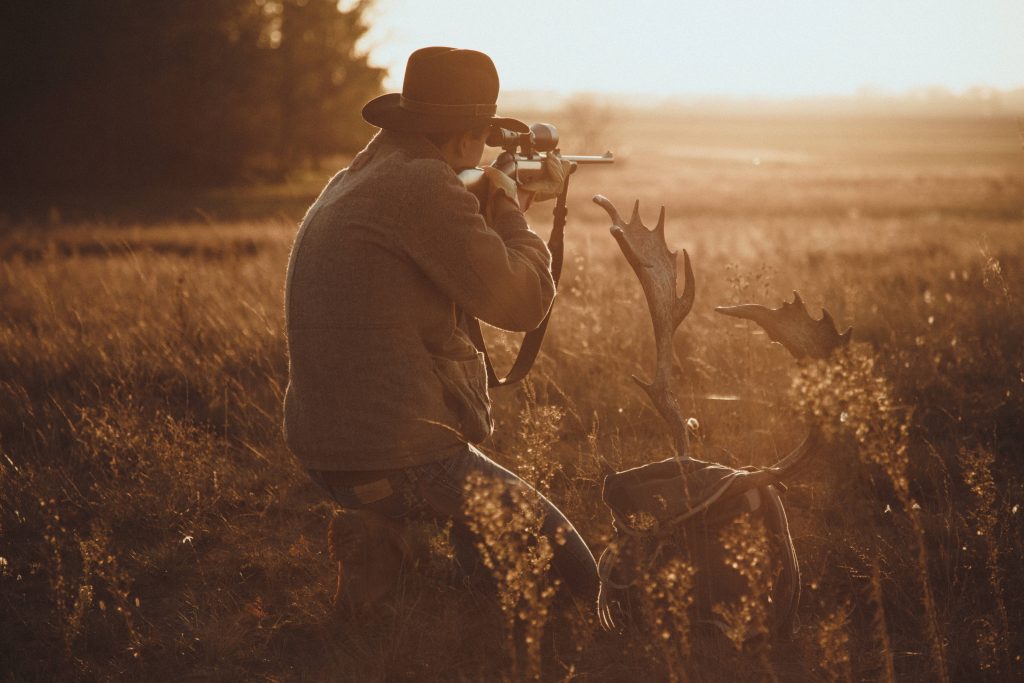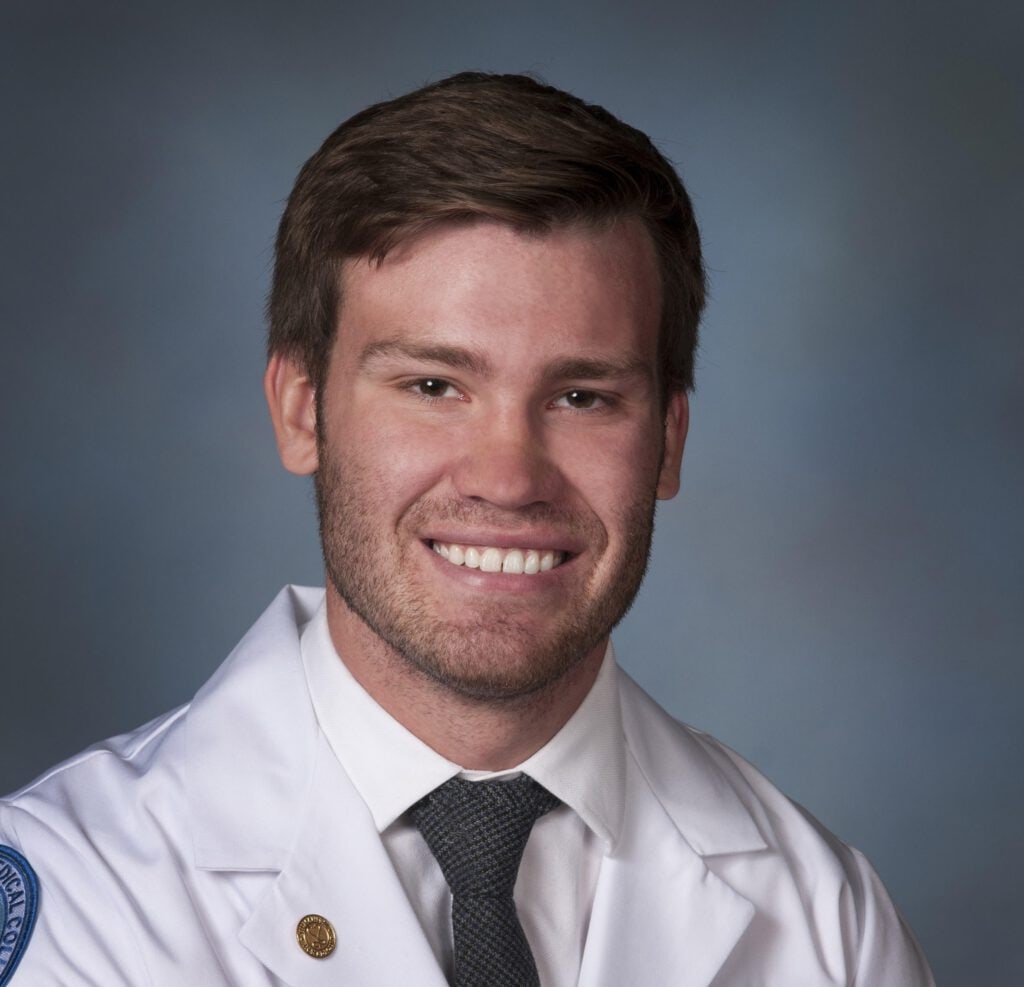
This column is a monthly feature of “Health & Exercise Forum” in association with the students and faculty of Geisinger Commonwealth School of Medicine (formerly The Commonwealth Medical College).

Guest author: Branston Allen
Branson is a currently a 4th year medical student at the Geisinger Commonwealth School of Medicine. He is a graduate of Lock Haven University and Shippensburg Area High School. Branson grew up in Shippensburg as an avid outdoorsman and enjoys activities ranging from hunting to fishing to camping.
As the temperature drops and the leaves fall, nearly one million Pennsylvanians take up their trusty deer rifles and plunge into the woods with hopes of dragging out a prized white-tailed deer. Historically, rifle season commences on the first Monday after Thanksgiving, however, this year, for the first time it will begin the Saturday after Thanksgiving and archery season has been active since October 5th. Hunters and loved ones often worry about potentially fatal misfortunates that can occur while secluded in the forest. These concerns range from stray bullets to tree stand falls. However, according to many experts, a heart attack is up to three times more likely to claim a hunter’s life than an errant bullet or arrow.
One Man’s Story
As a third year medical student, I’ve actually already encountered a local gentleman whose heart carries the scar of a heart attack he experienced while hunting. To protect his identity, I’ll refer to him as John. John – “November was always my favorite month of the year. Thanksgiving is a nice holiday and it’s great to see family. But the best part about it is deer season”. John is a 68 year old, recent retiree who was born and raised in Luzerne County. Like a lot of NEPA residents, he probably eats a few too many pierogis and drinks a few too many beers, but otherwise is pretty healthy. He worked most of his life in a local warehouse, and always requested off for the first 3 days of deer season. Last deer season was almost John’s last. “It was the second day of the season and I finally managed to get a clean shot at a nice sized doe. I was dragging her out whenever I got this massive pain across my chest. I was sweating like crazy and it felt like an elephant was sitting on my chest. After I few minutes, I got really nervous and called my wife. She told me to call 911” – John. Fortunately for John, his story had a happy ending. “The doc told me I had about a 99% block of a vessel in my heart that is called ‘the widow-maker’ and that I experienced a mild heart attack. Thankfully, they were able to fix me up with surgery, and I feel like lucky to still be here today”.
Risk Factors
Most people know a man like John and these are the type of people who we worry most about having heart attacks while they are hunting. The American Heart Association has identified men over the age of 45 and females above the age of 55 as the population most likely to suffer from cardiovascular disease. According to the Pennsylvania Game Commission, the majority of hunters are males of the age of 45, and these individuals are often overweight and don’t get much exercise throughout the year. When deer season comes, they’re putting strain on their muscles and heart in a way that their body isn’t used to dealing with. This increased demand on their hearts causes their heart rates to soar and can produce some of the tell-tale signs of heart disease. These include chest pain, arm pain or numbness, and shortness of breath. Additional risk factors such as high blood pressure, high cholesterol, obesity, and a sedentary lifestyle also increase one’s chances of suffering a heart attack.
What makes hunting especially scary is it stresses your body in ways everyday life doesn’t. Hunters must contend with the elements and temperatures associated with late November in Pennsylvania, the adrenaline surges associated with spotting a deer, and the daunting physical task of dragging 120+ pound deer out of woods if they shoot true. Any of these situations individually is capable of sending heart rates soaring. Complicating the hike into the woods on uneven terrain is the added weight of a gun, ammunition and other supplies. Also, trekking through mud or snow increases the physical demands exponentially. A research study out of Beaumont Hospital in Michigan found that the majority of hunters experience circumstances in which their heart rates exceed 85% of their maximum heart for sustained periods of time, which greatly increases the risk of a sedentary, unfit individual of sustaining a heart attack. Furthermore, hunters were more likely to demonstrate heart ischemia and arrhythmias during hunting than they were during a usual stress test with a treadmill. Arrhythmias are usually the cause of death when somebody experiences a heart attack, which makes these findings especially troublesome.
Prevention
So what can you do to keep yourself or your loved one safe during hunting season? First and foremost, if you experience any chest pain or shortness of breath on exertion, see your doctor immediately. Secondly, if you are a man over the age of 45 and have risk factors for heart disease such as hypertension, high cholesterol, diabetes, obesity, and/or live a sedentary lifestyle, talk to your doctor before you head out into the woods this year to make sure your heart can take all of the stress associated with hunting. Make sure that somebody knows where you’re at and can call for help if they don’t hear from you. If you have trouble walking or have risk factors for a heart attack, carry a cell phone with you and try to hunt near a place with vehicle access. Finally, just be smart and exercise caution while hunting. Listen to your body. Take as many breaks as you need while you are hiking into or out of your favorite hunting spot. If you manage to harvest a deer, take your time dragging it out of the woods. Drag, rest, and drag again. Better yet, call in backup and get some help with the drag, especially if you are a more seasoned hunter. You have earned the right to relax and employ the help of younger hunters to assist you. By doing this, you can ensure that this year’s deer won’t be your last.
Visit your doctor regularly and listen to your body.
NEXT MONDAY – Read Dr. Paul J. Mackarey “Health & Exercise Forum!”
This article is not intended as a substitute for medical treatment. If you have questions related to your medical condition, please contact your family physician. For further inquires related to this topic email: drpmackarey@msn.com
Paul J. Mackarey PT, DHSc, OCS is a Doctor in Health Sciences specializing in orthopaedic and sports physical therapy. Dr. Mackarey is in private practice and is an associate professor of clinical medicine at Geisinger Commonwealth School of Medicine.